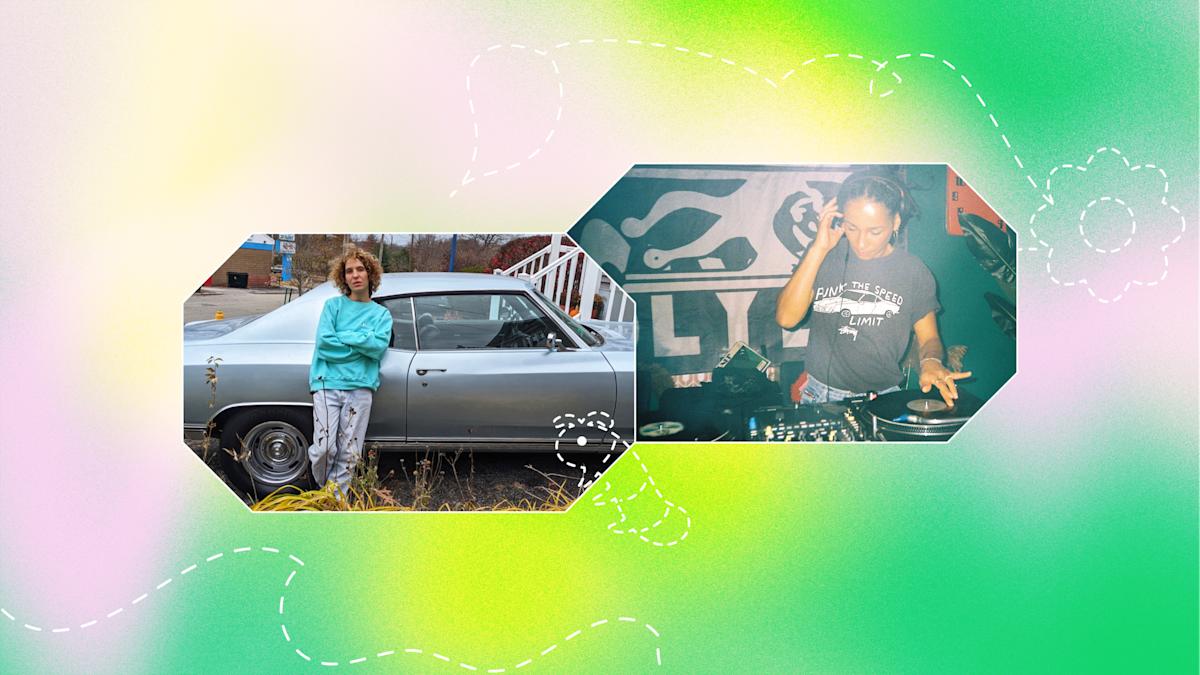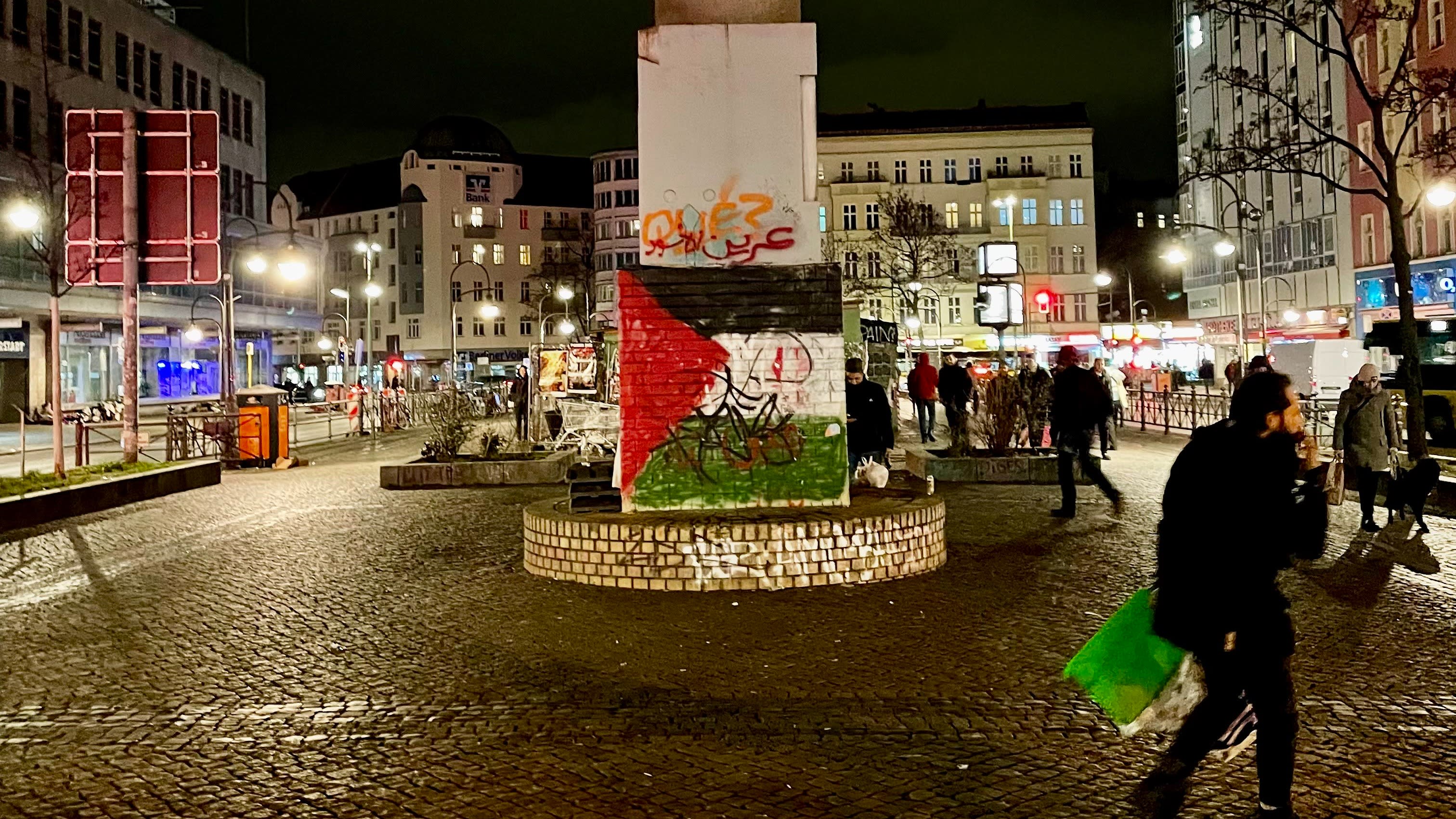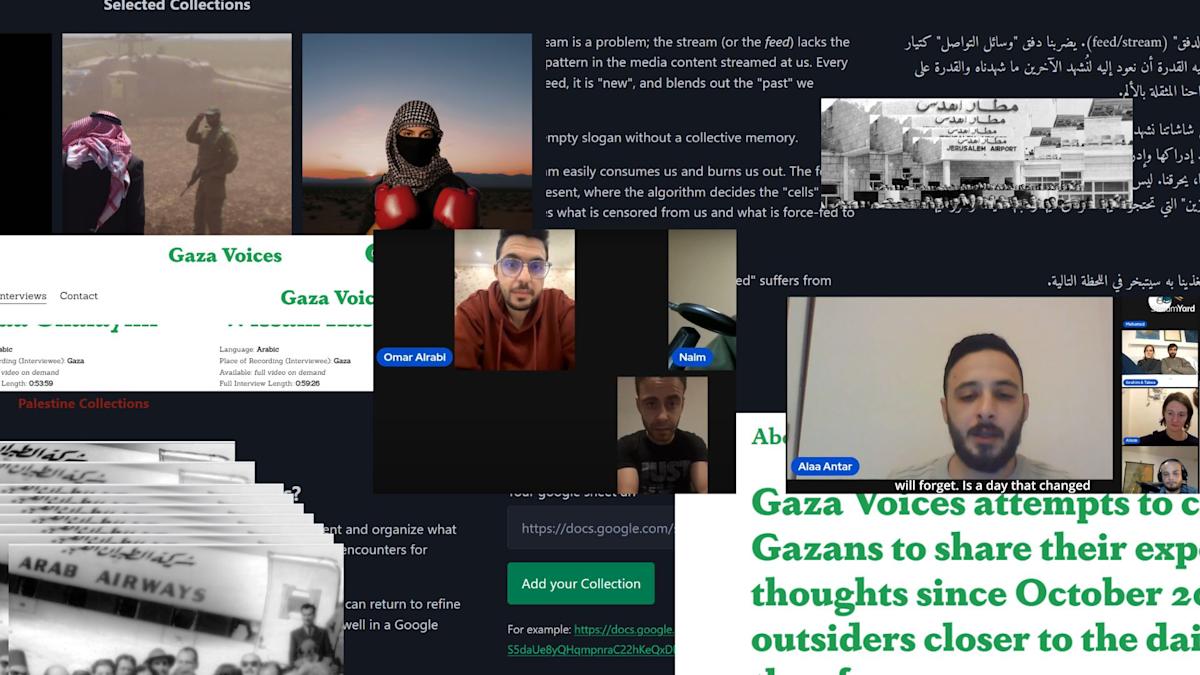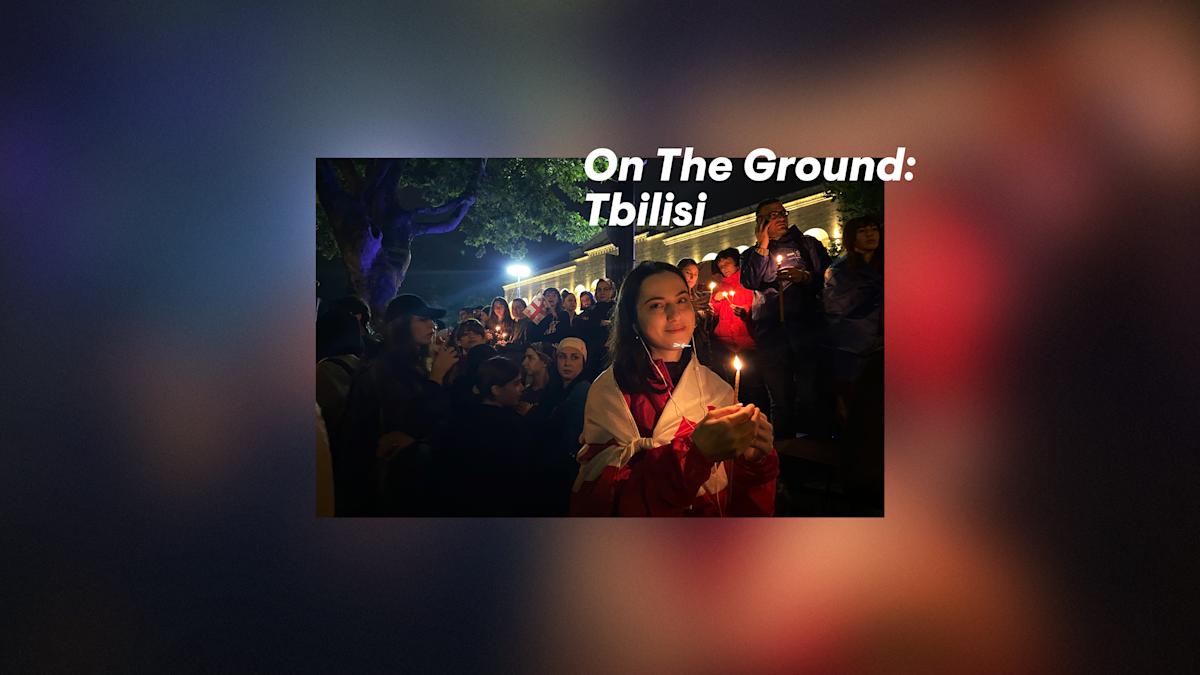
Femdelic and Nadia Wise select their open air soundtracks
Listen ahead of this Sunday's event in Plötzensee.
Loading

A conversation about repression and solidarity with the Palestine Congress organisers.
By Liv Toerkell
More than half a year into the ongoing military assault and starvation of Gaza at the hands of the Israeli army, Germany continues to export weapons to and express unwavering solidarity with Israel.
While Germany faces an ICJ lawsuit for facilitating genocide, activists and organisers confront the German government locally. The Palästina Kongress in Berlin accuses the German government of supporting a government that already killed over 40,000 Palestinians and has left 1.9 million people on the brink of starvation. Taking place from 12-14 April, the Kongress hosts acclaimed international speakers, panel talks, and workshops under the slogan: “Never Again for All”.
The Palästina Kongress has been met with heavy repression and denunciatory misinformation in the German media. We spoke to the organising team to learn more about the goals of the Palästina Kongress, how they are dealing with the repression, and how this affects political activism in Germany.
You can stream the Palästina Kongress live here.
In one of the most recent measures of repression, Berliner Sparkasse froze the bank account of the Jewish organisation Jewish Voice, or Jüdische Stimme, which is part of the activist groups involved in the planning of the Palästina Kongress. The account held the donations and funds from ticket sales for the conference. What is the status regarding this unjust freezing of money?
The Jewish Voice account was frozen on 26 March. The bank requested to see the names and addresses of all members, which is a highly unusual request and not legally backed. Especially in Germany, it is very problematic to police a Jewish organisation and ask them to list all members. The current status is that the account will most likely be shut down, probably in June or July. That means that until then, the owners cannot access any of their funds. This also affects the funding that Jewish Voice has for their organisation beyond the Kongress. For the time being, we switched to the Mera25 account in Belgium because those accounts can't be cancelled as quickly.
Can you still proceed as planned with the Congress?
Yes. Luckily, we were able to cover almost the entire cost through donations. Within a couple of weeks, we raised 15,000€ on GoFundMe for Jewish Voice and then we got almost the same amount within one week after the account was frozen. The freezing of the bank account also made international news. This showed how repressive the German government is at the moment. That brought us a lot of attention, and I'd say even say, helped our cause by bringing exposure that we could have never paid for.

In Germany, there has been a lot of misinformation about the Palästina Kongress labelling the event as an "antisemitic hate gathering". How are you dealing with this distorted image in the German media?
To anyone who has been active for Palestine in Germany, and anyone keeping up with the news about Palestinian solidarity in Germany, this is not a surprise. We knew that this was going to happen, especially from the conservative and reactionary newspapers like Bild Zeitung and Tagesspiegel. There was no question that they would frame us instantly as antisemitic. We, of course, reject their vicious remarks. Nothing about this event is antisemitic, none of the speakers are antisemitic. In almost any other country in the world, our speakers would be able to speak freely.
What harms us the most about this media campaign is that politicians from the Berliner Senate and the parliament have jumped on it as well. Youth organisations of the big political parties in Germany wrote a letter calling for the boycott of the Congress. Today, the list of all the signatories was revealed and it's a long list of politicians from SPD, FDP, and Linke. Some politicians called on the state to use any means at its disposal to make sure the Congress can't happen. The media campaign would be nothing without the backing of the politicians–but politicians could also have never done this without the media's backing.
How has that affected the Kongress so far?
It creates difficulties every step of the way. Instead of being able to organise and advertise it freely, we have to deal with the media and political reaction to anything we publish. Being labelled as an "antisemitic hate gathering" does not make it easy to find spaces. Especially when the speaker of the CDU in Berlin called on venues in Berlin to reject our conference. That was definitely a hurdle. Two people who were speaking about the conference also had their homes raided - police say that this had nothing to do with the Kongress but, of course, it instilled fear in the organisers and the speakers. It also made it harder for international speakers because the government could be looking into possible travel bans. Our fundraiser was also banned. This was probably the most direct attack and repression that happened. The police showed up at the venue and pressured the owner to not host our fundraiser - direct government interference in a self-organised event without justification.
What does this repression mean for political activism in Germany more broadly?
The treatment and repression of the Palästina Kongress should be worrying for anyone in Germany, even if the Palestinian cause is not one that's important to you. This is a conference organised by citizens practising their freedom of speech. The fact that the government puts so many resources into repressing an event that should fall under freedom of speech is really, really worrying. The German government uses Palestinian solidarity to infringe on all our rights. It's not like what is happening to Palästina Kongress is a one-time thing. It will keep happening. Right now, it's the Palestinian cause that is under attack, but these are precedents the government is setting. The fact that they have intimidated a café owner to stop a fundraising event is a direct physical interference, this should worry anyone, no matter your view on Palestine. It won’t get better once there is a ceasefire or because the situation in Gaza calms down.

Regardless of all these struggles, you still managed to gather an impressive line-up of German and international voices. What are you looking forward to and what worries you?
We're looking forward to seeing everyone. After organising for so long, it's nice to see things coming together. We're excited to create space for this important discourse and voices. One of them is the Palestinian doctor, Ghassan Abu Sitteh. He has been in Gaza during the genocide and bombardment of Al-Shifa hospital, so he has experienced the physical effects of the Zionist government. Now he's coming to Germany, where the government is one of the strongest backers of Israel both materially and ideologically. Being outside of Palestine, we don't have first-hand experience, so his insights will be very valuable. Apart from that, the opening event is important too, Yanis Varoufakis and Richard Boyd Barrett are European politicians who have also been pro-Palestine.
On the other hand, this open letter signed by high-ranking politicians is worrying. I think it's fairly likely that there will be a counter-protest and even physical threats. Misrepresentation and threats by media and politicians will continue. I really can't say exactly what will happen, but we are definitely worried. Worried about the speakers, worried about the physical well-being of attendees because the government has shown us that that's not something they value and that they will use even unjustified means to repress.
Despite the crackdown in the German political sphere, you sold out tickets within a very short time and quickly reached donation goals.
Yes, apart from the political establishment, the fact that this conference was so well received shows that the German public does really care about this issue and is not okay with the handling of genocide and one-sided support of Israel by the German government. Activist groups across Germany are organising protests in front of government buildings, there will be live streams of the conference. We've had many words of encouragement and support from all over Germany. I think what the political establishment does and what people want is not the same thing right now in Germany. And every day the gap is widening. I am not optimistic about the political establishment, but I am optimistic that this will get people thinking. The conference will create discourse and material for people to start questioning what they can do to hold their own government accountable to international law and the Genocide Convention.
On every evening of the Congress, there is time planned for networking. How important is that right now?
Networking is extremely important and one of the main goals of the whole conference. The Palestinian solidarity movement is happening in every country and city, but oftentimes decentralized and not without coordination. So, it is essential to come together to align in our over-arching goals. By creating a network, we can also help each other. This solidarity is important if any individual group faces repression. Together the movement is stronger, and it makes any group more secure, safe and capable when you have a network that you can reach out to.
What are the main goals of the Congress?
The goals of the conference are in line with Nicaragua's case at the ICJ. Apart from the US, which supplies about 70% of the weapons to Israel, Germany is the second biggest supplier. We have to put pressure on the government to adhere to the Genocide Convention. For that, we need to accuse Germany of being complicit and hold them accountable. This is also where the networking part comes in. Germany has made it clear that they don't care about what the local Palestinian solidarity movement says. They've repressed and criminalised us, so international attention on what is happening in Germany is key. That is why we are also holding the conference in Berlin. Pressuring the government to stop materially supporting the genocide will make a tangible difference on the ground. We want to end the genocide by any means necessary.
Do you think a conference like the Palästina Kongress can have a lasting change on the political level in Germany around the discourse of Palestine?
I hope so but I am not optimistic. Very early on in the genocide, no major political parties showed solidarity with Palestinians. They all stated unconditional solidarity with Israel. Considering Germany's historic position, I guess it makes sense. But the entire political establishment in Germany has never acknowledged the plight of the Palestinians or the violence against them happening historically and currently. They continue to use repression and censorship, even against critical Jewish voices, claiming that it’s in the name of fighting anti-Semitism. It is a twisted narrative. The hope we have for this conference is that people will tune in and listen to what the speakers have to say. We've invited internationally renowned speakers so that it's impossible for the German government to dismiss them as fringe leftist extremists. We hope, but the German government has shown no signs of positive development.

Looking at the future of pro-Palestinian activism in Germany, where do you see things going?
One very important moment is the upcoming European Parliament election. Mera25, the German group of the diem25 movement, will be running. They are the only major political party that is pro-Palestinian. If they get elected, that would be a big win.
In general, over the last six months, dozens and dozens of political and activist groups have formed. They have not been demoralised by the government's repression through criminalisation, physical violence, house searches, cultural censorship, and banning or firing people. The movement survived, and in many ways became stronger. I think this trend will continue on both sides. If the German government sticks to its unconditional support of Israel and the genocide, the resistance will increase and that means authorities will also increase the repression. We have already seen this happening. In Berlin, the police laws were changed, and people can be detained longer. The police have more rights to repress your rights. And despite the continuous racist rhetoric by the government, new migrant groups and leftist groups are popping up to counteract this movement.

The Palästina Kongress takes place from 12-14 April in Berlin.
Images by Hossam el-Hamalawy and Montecruz Foto licensed under CC BY 2.0 DEED.

Listen ahead of this Sunday's event in Plötzensee.

Join us at Niemetzstrasse on Friday, June 7th.

A conversation with Marika Mikiashvili.